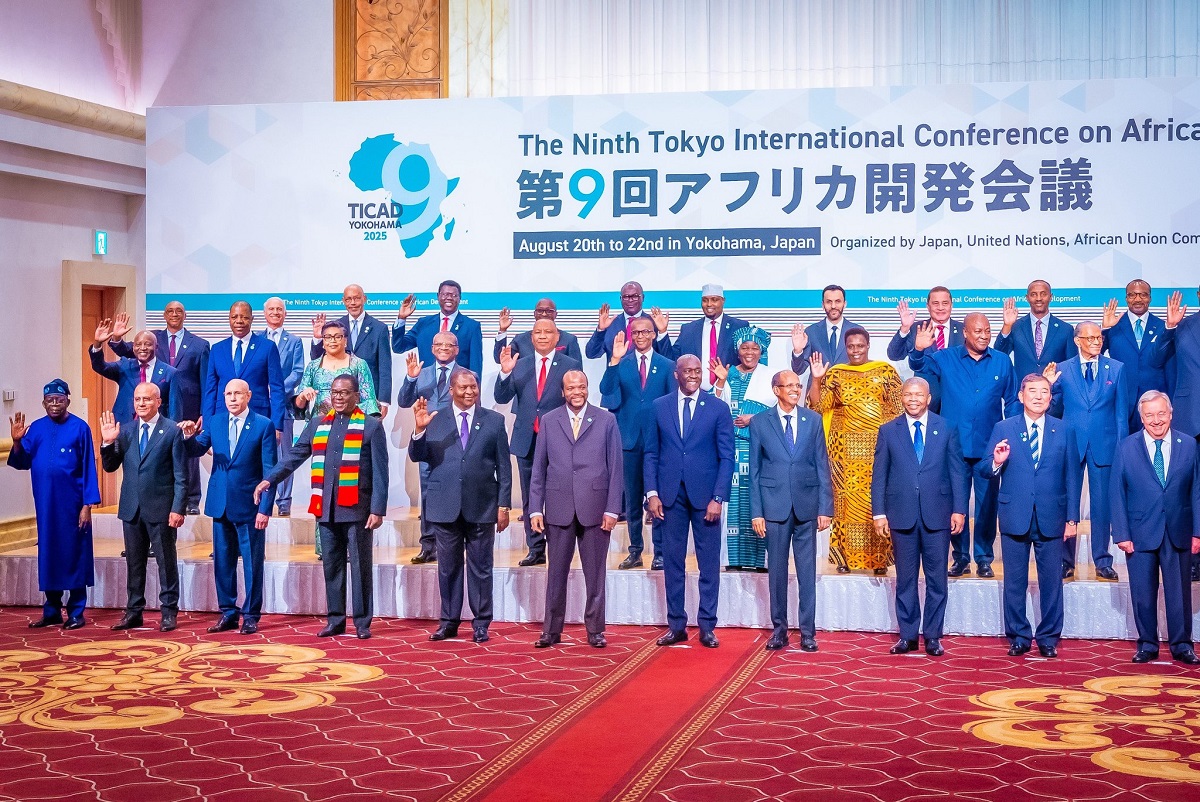- Japan plans to channel key investments into Africa by encouraging Japanese multinationals operating in India and the Middle East to set up shop in the continent.
- Investment move comes at a time when Beijing is equally ramping up its presence in Africa while Washington unleashes tariffs, and crippling aid cuts.
- UN Secretary-General António Guterres: “Countries hosting them [critical minerals] must be the ones to benefit first and most, while adding value to local and global value chains.”
As the battle by the world’s biggest economies for a slice of the 1.4 billion market and wealth of vast resources in Africa heats up, Japan is proposing the creation of a special economic zone linking the continent with the Indian Ocean.
According to the AP, on Wednesday, the Prime Minister of Japan Shigeru Ishiba proposed to government and business leaders the creation of an economic zone linking the Indian Ocean to Africa, signaling that Tokyo seeks to cement its existing diplomatic and trade relations with the continent even as Washington’s presence teeters.
Shigeru Ishiba was speaking during the Tokyo International Conference on African Development (TICAD), a forum that aims at increasing the presence of Japan’s multinationals and investments in the continent, which is now evolving into a new frontier for free trade.
Japan backs the concept of African Continental Free Trade Area
“Japan believes in Africa’s future,” Ishiba stated. “Japan backs the concept of African Continental Free Trade Area,” a trade blueprint that is modelled to bolster Africa’s competitiveness while promoting exchange of goods and services within Africa.
Under the Indian Ocean Africa economic zone growth plan, Japan plans to channel key investments into Africa, partly by encouraging Japanese multinationals operating in India and the Middle East to set up shop in the continent.
What’s more, the Prime Minister noted that Japan is readying up to $5.5 billion in credit support in close collaboration with the African Development Bank aiming at promoting economies in Africa to enhance sustainable development while fixing mounting debt woes.
Japan’s proposal to connect the Indian Ocean with Africa on trade comes at a time when Beijing is also ramping up its presence in the continent as Washington unleashes tariffs, and implements aid cuts, negatively affecting key sectors such as health, and education across African economies.
Japan on peace, health and climate change
The three-day summit in Yokohama, has attracted the attendance of top government representatives from 50 countries in Africa to explore economic opportunities presented by Japan.
The forum will also explore other cross-cutting issues such as peace and stability, health, climate change and education, which Japan is deeply involved in Africa.
Speaking at the same forum, United Nations Secretary-General António Guterres, noted that African economies continue to suffer underrepresentation in key decision-making processes internationally. “Africa must have a stronger voice in shaping the decisions that affect its future,” UN’s António Guterres, said.
“With the world’s youngest population, abundant natural resources, and a vibrant entrepreneurial spirit, Africa is poised for progress,” he told the 9th Tokyo International Conference on African Development (TICAD) in Yokohama.
The Secretary-General next put the spotlight on investment in sustainable global value chains and regional integration.
“Africa’s path for prosperity must focus on adding value to its raw materials, creating decent jobs, and building resilience, taking profit of the African Continental Free Trade Area,” he said.
He also stressed the need to address “Africa’s energy paradox”, noting that although the continent has enormous potential to produce renewable energy, it receives just two per cent of global investment in the sector. Meanwhile, some 600 million African lack access to electricity.
“Africa is also home to the critical minerals required to power renewable technologies,” he continued. “But the countries hosting them must be the ones to benefit first and most, while adding value to local and global value chains.”
UN’s António Guterres: Invest in technology, youth and peace
Turning next to technology, Mr. Guterres called for harnessing digital innovation, including artificial intelligence (AI), for development.
He said Japan’s technological leadership can help close the digital divide, “and ensure that technology helps African countries catch up, with adequate digital public infrastructure, rather than being left behind.”
As “young people are the builders of Africa’s future”, the Secretary-General’s fourth point underscored the need to invest in their skills and education, particularly in STEM (Science, Technology, Engineering and Maths).
“Let us invest in women’s full participation across economies, societies and political systems,” he added.
Already, Japan has announced to offer training support targeting 30,000 artificial intelligence experts in Africa over the next three years to promote digitalization and create decent jobs.
Read also: AIM Congress 2025 ignites UAE-Japan-Africa investment synergies
Related posts
Meet the Author

Gillion is a multi-concept WordPress theme that lets you create blog, magazine, news, review websites. With clean and functional design and lots of useful features theme will deliver amazing user experience to your clients and readers.
Learn moreCategories
- Africa (12,123)
- Business (562)
- Design (3)
- East Africa (739)
- Guide (7)
- Interior (1)
- Life (1)
- Lifestyle (5)
- Motivation (4)
- People (3)
- Photography (2)
- Rest of Africa (731)
- Review (1)
- Science (72)
- Style (1)
- Travel (5)
- World (173)
Subscribe Now
* You will receive the latest news and updates on your favorite celebrities!



